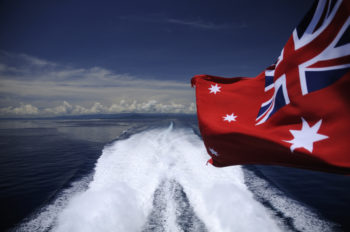
The International Transport Workers’ Federation (ITF) Cabotage Taskforce, today blasted Australia’s Productivity Commission as entirely missing the point of having a national shipping fleet.
According to ITF, the Productivity Commission has recommended deregulation of coastal shipping in a report into Australia’s agricultural exports, saying that to improve the efficiency of coastal shipping services, barriers to entry for foreign vessels should be removed to allow greater competition.
However, ITF president and Maritime Union of Australia (MUA) national secretary Paddy Crumlin said that not for the first time, the Productivity Commission “had entirely missed the point of cabotage.”
“The ITF supports the MUA and strongly rejects any suggestion that coastal shipping laws should be wound back, when in fact they should be strengthened to ensure better national security, fuel security and protection of Australia’s pristine coastline,” Chair of ITF Cabotage Task Force and president of the Seafarers’ International Union of Canada, James Given, stated.
“Australia has the fourth largest shipping task in the world and the continuation of a domestic fleet logically should be of national and strategic interest. Rather than allow unscrupulous tax dodgers running flag of convenience ships and exploiting foreign labour in a race to the bottom, any sensible person can see Australia needs Australian crews under Australian pay and conditions working on the Australian coast,” said Dave Heindel, chair of the ITF Seafarers’ Section.
The conservative Australian Government recently released a Discussion Paper on Coastal Shipping, seeking comment from ship operators, shipping companies, and other relevant stakeholders on proposed changes.
“The MUA remains disappointed that the discussion paper omits most of the proposals put forward in the industry Green Paper which was developed through exhaustive meetings over a long period of time with key stakeholders,” Paddy Crumlin said.
Among the proposed changes in the discussion paper is the removal of the five-voyage minimum requirement for a Temporary Licence (TL), which would allow for organisations to apply for single voyages instead of the current five.
There are also proposals to streamline the licensing processes for TLs and in instances where no General Licence (GL) vessels are available.
The proposed changes would make it easier for the Minister’s Delegate to provide Temporary Licenses (TLs) to foreign ships and make it more difficult for Australian ships with Australian crew to compete in the coastal trade, ITF claims.
“The Paper also did not address any of the proposals which complemented the Green Paper, such as providing a new commercial solution to get the balance right between supporting a core Australian fleet supplemented by foreign ships on a Temporary Licence,” the union added.
The ITF urged the Australian Government to work with the MUA and develop a new and separate ‘maritime crew visa’ for non-nationals employed on ships issued with a Temporary License under the CT Act that includes the same labour market testing and worker entitlement provisions that apply to a 457-work visa.
The task force consists of unions from Canada, Norway, Brazil, Greece, Russia, Ukraine, USA, Nigeria, Australia, the Philippines and India.
Copyright Ships & Ports Ltd. Permission to use quotations from this article is granted subject to appropriate credit given to www.shipsandports.com.ng as the source.
